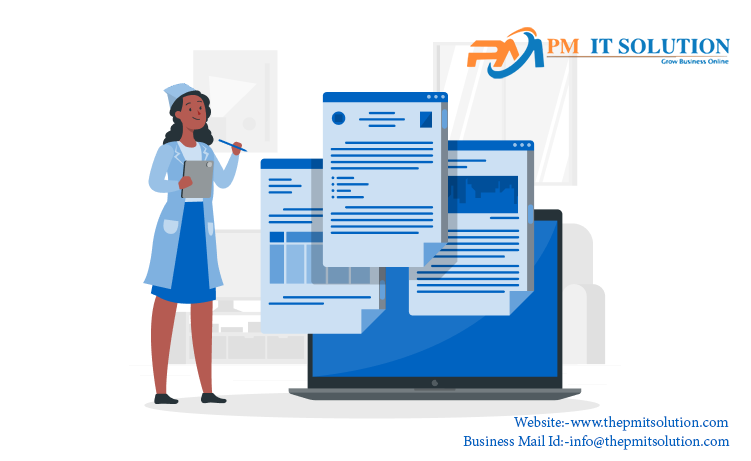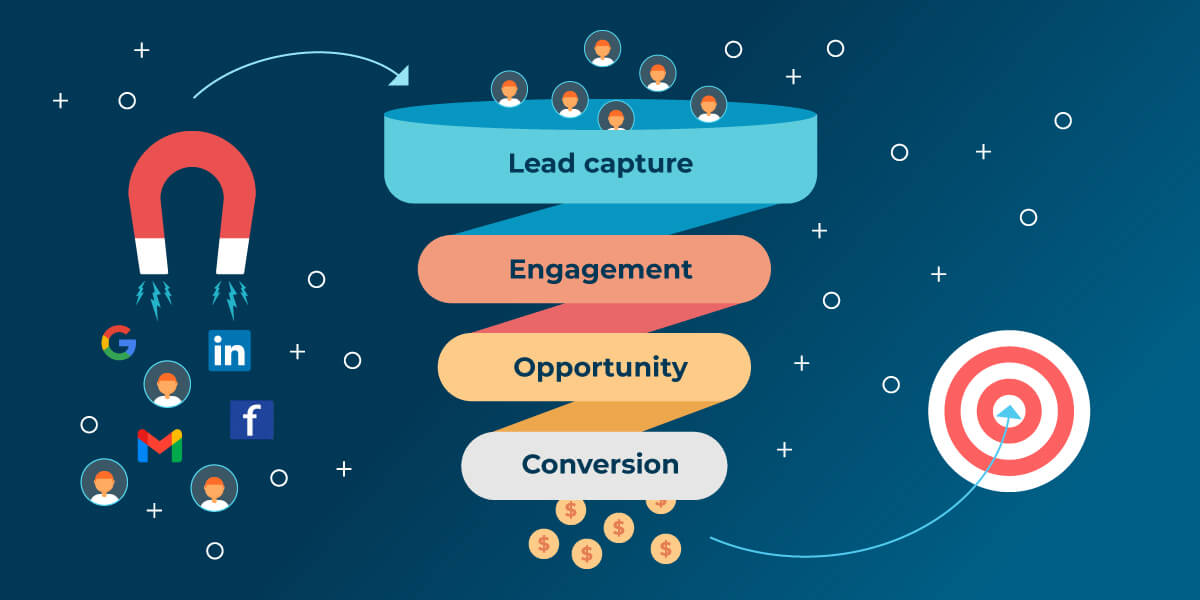Creating the Best Hospital Management Software for Your Facility

Hospital management software has come a long way in the past decade. No longer are hospitals stuck with outdated systems that barely handle billing and patient records. Today’s hospital management systems offer tools to improve patient care, efficiency, and operations. The challenge is finding the right software development company to create a customized system that addresses your needs. Our company, SoftMed Solutions, has over 20 years of experience developing innovative software for hospitals nationwide. Whether you want to implement an electronic health records system, analytics tools, mobile apps, or other solutions, our expert developers can build a hospital management platform tailored to your facility. With a track record of successful implementations and glowing client reviews, we’re ready to partner with you on this critical project.
Key Features to Look for in Hospital Management Software Development Company
To develop your facility’s best hospital management software, look for a company that can provide the key features you need.
Integrated modules:
- The software should have integrated modules for patient records, billing, inventory, human resources, and more. This allows for efficient workflow and transfer of data between departments.
Secure data storage:
- Patient data and hospital records must be kept private and secure. Choose a company that can build software with role-based access, data encryption, and redundancy to prevent data loss. They should be able to manage software updates and security patches to protect against vulnerabilities.
No two hospitals are alike, so the software must be customizable to your facility’s needs. Look for a company that will take the time to understand your hospital’s processes and requirements. They should be able to configure the software to match your workflow, terminology, and branding. Customization may include custom fields, reports, dashboards, and user interfaces.
Reporting and analytics:
- Robust reporting and analytics features provide insights into hospital operations and key performance indicators. The software should offer standard reports for patient volume, staff productivity, revenue, and costs. It should also allow you to create custom reports and run ad hoc queries. Look for a company experienced in healthcare data analysis that can help you gain actionable insights from your software.
Support and training:
- Ongoing support and training are essential once the software is developed and implemented. Choose a company that offers help desk support, software updates, data security monitoring, and continuing education for your staff. They should provide initial training on the software as well as refresher courses. With good support and training, your staff will get the most out of your hospital management software.
Finding a software development company with expertise in healthcare technology and these key features will help ensure you get hospital management software tailored to your needs. The right software can help improve productivity, cut costs, and enhance the patient experience at your facility.
Integrations That Streamline Hospital Workflows
Effective hospital management software should integrate with the other systems and tools used in a healthcare facility. Seamless integrations that connect data across platforms streamline workflows and improve the delivery of patient care.
Some of the most valuable integrations for hospitals include:
- Electronic Health Records (EHRs): Integrating with the hospital’s EHR system allows for automatically transferring patient data like admissions, discharges, demographics, and billing information between systems. This eliminates manual data entry and ensures accurate, up-to-date patient records.
- Medical Devices: Connecting to medical devices like patient monitoring equipment, imaging scanners, and diagnostic tools captures essential data for patient records and billing. Real-time data from devices can also alert hospital staff about critical changes in patient conditions.
- Pharmacy Management: An integration with the hospital pharmacy system facilitates medication orders, updates patient records with administered drugs, and bills patients accurately for medications received during their stay.
- Laboratory Information Systems: Links to the lab information system import test results, diagnostic reports, and other clinical data into patient EHRs and the hospital management system. This provides clinicians with a comprehensive view of patients’ health and care.
- Billing and Insurance: Tight integration between hospital management software, EHRs, and insurance billing platforms streamlines the entire revenue cycle process. It ensures all services are appropriately billed and paid, reducing costly errors and maximizing reimbursements.
With well-designed platform integrations, hospitals gain a holistic, up-to-date view of patient care and streamlined administrative and clinical staff workflows. The result is improved productivity, reduced costs, and better health outcomes. Strategic software integrations are essential for efficient hospital management in today’s data-driven healthcare environment.
Selecting the Right Hospital Management Software Developer
When looking for a hospital management software developer, it’s essential to find one with experience creating customized solutions for healthcare organizations.### Relevant Experience Look for a developer with at least 5-10 years of experience developing software for hospitals and healthcare systems. They should have case studies and client references to demonstrate their experience. An experienced developer will understand the complex needs of hospitals and be able to translate those needs into an intuitive, user-friendly software solution.
Customized Solutions
Avoid developers that offer one-size-fits-all hospital management software. Each hospital has unique needs, workflows, and processes. Choose a developer that will take the time to understand your specific requirements and develop a customized solution tailored to your needs. They should use an agile development approach with multiple iterations to ensure the software meets your needs.
Integrated Modules
The ideal hospital management software integrates multiple modules under one system, including patient records, billing, pharmacy, diagnostics, reporting, and more. This eliminates the need for various systems that don’t communicate with each other. Choose a developer to integrate multiple hospital functions into a cohesive software solution.
Implementation and Support
Look for a developer that provides full support during and after implementation. They should offer training, data migration services, and ongoing technical support to help your staff learn and use the new software solution. Post-implementation support is essential for resolving issues, answering questions, and updating the software.
Selecting an experienced developer focused on customized, integrated hospital management software solutions will help ensure you get a system tailored to your needs. With the right developer as a partner, you can gain a powerful software solution to improve hospital operations, patient care, and financial performance.
Implementing New Hospital Management Software Successfully
Careful implementation is critical to success when a hospital transitions to new management software. The project manager should follow some best practices:
Thorough Planning
The planning phase is critical. Meet with department heads to determine needs and priorities. Develop a detailed plan, including realistic timelines and budgets.
Adequate Training
Staff must be adequately trained on the new system before implementation. Provide hands-on training, reference manuals, video tutorials, and a help desk. Training should start at least a month before the go-live date.
Gradual Transition
Rather than flipping a switch to the new system, transition gradually. Start with a pilot group, work out any issues, and then roll it out to additional departments over weeks or months. This avoids disruption and allows for feedback and adaptations.
Sufficient Support
Have dedicated support staff, especially in the early days after implementation. They can help troubleshoot any problems, answer questions, and provide guidance. Make the support help desk visible and easily accessible to all staff.
Open Communication
Communicate frequently with all staff to inform them of the transition timeline, what to expect, available resources, and who to contact with questions or concerns. Be transparent about challenges as well as progress. Address staff feedback and make any necessary adjustments to the plan.
If the implementation is managed carefully following best practices, new hospital management software can be integrated successfully with minimal disruption. Close collaboration, adequate training and resources, gradual transitioning, and clear communication are all critical factors for an efficient changeover. With time and experience, staff will become comfortable and proficient in using the new system.
Hospital Management Software Development Company FAQs
A hospital management software development company aims to provide solutions to help hospitals and healthcare organizations operate more efficiently. Here are some frequently asked questions about these types of companies:
Hospital management software, or hospital information systems (HIS), helps manage daily operations in hospitals and healthcare facilities. These systems typically handle billing, electronic health records (EHRs), patient registration, scheduling, and inventory.
How can hospital management software benefit my facility?
Hospital management software offers several benefits to healthcare organizations:
- Improved patient care. With integrated patient records and scheduling, doctors and staff have the information they need to provide the best care.
- Increased efficiency. Automating manual processes like billing, registration, and inventory frees staff to focus on patient care.
- Cost savings. Eliminating paperwork and streamlining operations can significantly reduce costs.
- Data security. Hospital management systems allow for the secure storage and transmission of sensitive patient data to comply with regulations.
- Better decision-making. With data in one place, hospital administrators can gain valuable insights to make crucial decisions.
How do I choose a hospital management software company?
When evaluating hospital management software companies, consider the following:
• Experience developing solutions for hospitals and healthcare organizations. An experienced company will understand your unique needs.
• Comprehensive, integrated solutions. Look for a company that offers solutions handling all critical areas like EHR, billing, scheduling, inventory, etc.
• Ease of use. The software should be intuitive for doctors, staff, and administrators to learn and use efficiently.
• Implementation and support. Ensure the company provides guidance on implementation as well as ongoing technical support.
• Security and compliance. The software must meet all security, privacy, and healthcare data standards regulations.
• Pricing and contracts. Compare costs, payment models (e.g., monthly subscription), and company contract terms. Look for the most cost-effective option for your needs.
• Customer references. Ask the company for references from current hospital clients with similar operational requirements. Contact them to learn about their experience with the software and company.
Conclusion
So there you have it – the keys to developing excellent hospital management software. By focusing on functionality, user experience, integration capabilities, data security, and flexibility for customization, software companies can produce solutions that genuinely meet the complex needs of hospitals and clinics. Though not a small feat, investing the time upfront to thoroughly understand workflow and requirements from multiple stakeholder perspectives pays off on the back end with smoother implementation and better adoption. And ultimately, isn’t that what every healthcare administrator wants – technology that enhances instead of hinders patient care? With a thoughtful approach and commitment to continuous quality improvement, innovative software can take healthcare organizations to the next level.









